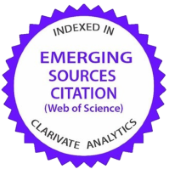Innovation Mechanism in the Hospitality Industry: A Mediated-Moderated Model
DOI:
https://doi.org/10.29036/jots.v14i26.492Abstract
This study examines the relationship between empowered leadership (EL), intrinsic motivation (IM), job complexity (JC), and innovative employee behavior (EIB) in the hospitality industry. The study specifically investigates how EL affects EIB and how IM mediates this connection. Furthermore, this study explores the moderating impact of JC on the direct interconnected linkages between EL, IM, and EIB. Our sample comprises 506 employee-supervisor dyads from 45 five-star hotels in the Middle East, representing a variety of international hotel chains. Using partial least squares structural equation modeling (PLS-SEM), the study finds that EL significantly impacts EIB, which IM subsequently influences. Additionally, we discover that IM acts as a mediator for EL and EIB. Moreover, we find that JC has a moderating impact on the strength of these relationships. Our findings have both theoretical and practical implications for hotel managers and researchers interested in fostering their subordinates' IM and promoting their innovation. We also emphasize the importance of JC in positively influencing the strength of these relationships in the hotel industry. Managers can develop strategies to increase their businesses' competitiveness in this dynamic and competitive sector by better understanding the factors that drive EIB.
Downloads
Downloads
Published
Issue
Section
License
Copyright (c) 2023 Journal of Tourism and Services

This work is licensed under a Creative Commons Attribution-NonCommercial-NoDerivatives 4.0 International License.
Journal of Tourism and Services (ISSN 1804-5650) is published by the Center for International Scientific Research of VŠO and VŠPP in cooperation with the following partners:
- Juraj Dobrila University of Pula, Faculty of Economics and Tourism, Croatia
- School of Business and Administration of the Polytechnic Institute of Setúbal, Portugal
- Szent István University, Faculty of Economics and Social Sciences, Hungary
- Pan-European University, Faculty of Business, Prague, Czech Republic
- Pan-European University, Faculty of Entrepreneurship and Law, Prague, Czech Republic
- University of Debrecen Faculty of Economics and Business, Hungary
- University of Zilina, Faculty of Operation and Economics of Transport and Communications, Slovakia
The publisher provides a free access policy to the Journal of Tourism and Services.





